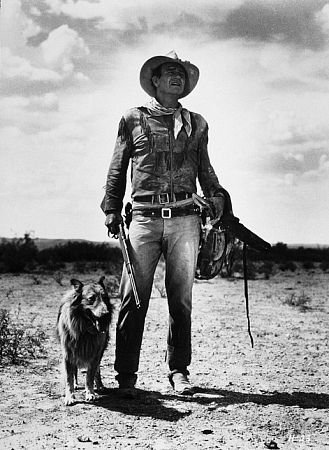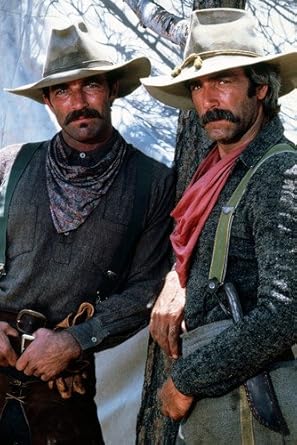“There will come a time when you believe everything is finished. Yet that will be the beginning.”

Louis Dearborn LaMoore, who wrote the above statement, was born in North Dakota on March 22, 1908, a time when the Great American West was beginning to fade into history. As a boy, Louis would talk to the cowboys who frequently traveled through his hometown, driving livestock to and from ranches in Montana. Louis often fantasized about the bygone days of the Wild West, played “Cowboys and Indians” in the family barn, and devoured scores of historical adventure novels.
Louis’ father was a farm veterinarian and politician who’d arrived in the Dakota Territory to make his fortune in 1882. But in the winter of 1923, following a series of bank failures that devastated the area’s economy, Dr. LaMoore headed South with his wife and seven children. During the next several years, the LaMoores worked the mines in Arizona, California and Nevada, baled hay in New Mexico, and skinned cattle in Texas. Along the way, Louis met dozens of fascinating people, from all walks of life, which would eventually inspire the colorful characters in his fiction.
LaMoore dreamed of being a writer. And although he initially found some success writing articles about his travels, his short stories were repeatedly rejected. LaMoore would eventually publish 105 books (89 novels, 14 short story collections and 2 works of non-fiction), but before then he had a long ways to travel.
LaMoore took to the road. Along the way, he spent time as a mine assessment worker. He later became a professional boxer. And as a merchant seaman, he traveled the world, visiting England, Japan, China, Arabia, Egypt, and Panama. But he returned home in 1933, settled in Oklahoma, changed his name to Louis L’Amour, and pursued his writing.
L’Amour mostly wrote novels about the Wild West, classics of the genre, many of which would be adapted for movies and television — including Hondo, starring John Wayne, and The Sacketts, starring Tom Selleck and Sam Elliott. But getting the first few published was laborious. LaMoore once wrote, “Victory is won not in miles but in inches. Win a little now, hold your ground, and later, win a little more.”

L’Amour slowing gained ground with American publishers, but the writer was extremely prolific and wrote more novels than he could place with the few major publishing houses. None of these companies were willing to publish more than two of his books a year — and L’Amour had already placed novels with several of them.
Bantam Books finally took a chance on Louis L’Amour, and contracted to publish all of the novelist’s works: past, present and yet to be written. And the publisher never had occasion to regret its agreement. L’Amour was a perennial gold mine for Bantam, ultimately selling over 320 million copies, and the publisher continues to keep the L’Amour Library in print.
Start writing, no matter what. The water does not flow until the faucet is turned on. (Louis L’Amour)
A person’s gift opens doors for him, bringing him access to important people. (Proverbs 18:16 ISV)
